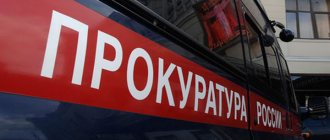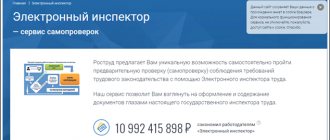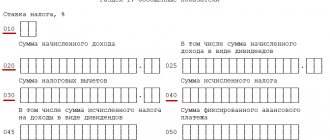When Rospotrebnadzor conducts an unscheduled inspection
The grounds for an unscheduled inspection by Rospotrebnadzor are given in clause 26 of the Administrative Regulations, approved. by order of Rospotrebnadzor dated July 16, 2012 No. 764. The inspection is carried out if:
- a complaint has been received from a citizen, organization or government body;
- the period allotted for eliminating violations identified during a previous inspection has expired;
- a demand was received from the prosecutor's office.
The reason why the inspectors came with the inspection must be recorded in the order of Rospotrebnadzor on its appointment.
Visits and inspections
Rospotrebnadzor changed its approach to inspections, placing emphasis on sudden visits, without a plan, which could previously be seen on the Internet. Obviously, this will complicate the life of businessmen and will force them to strictly monitor compliance with legislation protecting consumer rights and product quality regulations.
At the same time, preventive measures are becoming widespread. An inspector may come on a one-day visit for preventive purposes and tell the entrepreneur what responsibilities he has. Violations noticed (the inspector will issue a warning on them) will be asked to be corrected, and serious miscalculations immediately give rise to a real inspection. The new company will most likely come to the attention of Rospotrebnadzor. You can cancel the visit 3 days before the start, the company is notified 5 days in advance. In itself, such a visit does not threaten any “punitive measures” (R. III post. No. 1005).
They will come with an inspection in cases specified by law:
- Receiving a complaint against a company violating the law, or detection of serious violations by Rospotrebnadzor itself.
- Instructions from the President or Government of the Russian Federation regarding specific individuals.
- Request from the prosecutor's office if it has a complaint against the company or information about violations.
- A situation where a company was given an order that needs to be corrected, but the entrepreneur forgot to report on the measures taken.
Procedure for conducting an unscheduled inspection
Rospotrebnadzor conducts audits outside the established schedule in the following sequence:
- A notice of the upcoming inspection is sent to the organization being inspected. Please note that notice will not be provided in the situations we describe below.
- On the appointed day, a request is sent to the organization to provide certain documents (during a documentary check) or inspectors arrive (during an on-site visit).
- Inspectors conduct an inspection, following which a report is drawn up. It records the audit results, identified violations (if any) and deadlines for their elimination. If there are violations, the inspector:
- issues a warning to the official responsible for that part of the enterprise’s activities in which inconsistencies were found;
- imposes a fine on the organization; or
- suspends the activities of the organization for a certain period.
ConsultantPlus has many ready-made solutions, including the article “Procedure for conducting inspections by Rospotrebnadzor.” If you don't have access to the system yet, sign up for a free trial online. You can also get the current K+ price list.
"Gingerbread" for the company
Rospotrebnadzor, in addition to various inspections, pays attention to business motivation in a positive way.
The company, having contacted Rospotrebnadzor and received instructions on how to act, can undergo a self-examination. After successfully carrying out such a preventive measure, the company is assigned a high reputational status. She has the right to use status information publicly for advertising. The supervisory authority will also report this on its Internet resource, which gives an additional bonus to conscientious businessmen. Inspectors will appear in the organization less frequently and will conduct some inspections remotely.
Officials are required to provide free consultation to businesses on all issues of conducting inspections, making decisions, appealing decisions, and legislative norms. You can contact (according to the text of R. III post. No. 1005):
- personally;
- by phone;
- by email;
- via video link;
- during the inspector's visit.
Note! Video messages and personal calls are made by appointment.
A businessman has the right to appeal any actions of officials, inspection reports, decisions (R.V post. No. 1005). The deadlines are different: decisions and actions are appealed within 30 calendar days from the date of receipt of information; for an order, the period is only 10 days. You need to contact the head of the local territorial body. If the decision on the complaint does not suit the entrepreneur, the next step is to go to court.
Form of verification: documentary, on-site
Unscheduled inspections of Rospotrebnadzor in 2022 are divided into:
- to documentary;
- away.
The documentary check is carried out on the territory of Rospotrebnadzor (Part 2 of Article 11 of the Federal Law “On the Protection of Rights...” dated December 26, 2008 No. 294-FZ). The inspected organization must provide copies of the requested documents, certified by the signature of the head and seal (if any). You can present electronic images of documents, but in this case they will have to be certified with an enhanced qualified electronic signature of the manager (Part 6, Article 11 of Federal Law No. 294). 10 working days are allotted for the transfer of documents (Part 5, Article 11 of Federal Law No. 294).
An on-site inspection is carried out on the territory of the organization being inspected (Part 2 of Article 12 of Federal Law No. 294). The need to carry it out arises if it is not possible to:
- check how true the data specified in the documents submitted by the organization is;
- establish compliance of processes occurring within the company with legal requirements.
What kind of violations will inspectors look for:
1. Cleaning and disinfection.
According to the recommendations of Rospotrebnadzor, organizations are required to carry out regular cleaning and disinfection. Inspectors will require to see a log or schedule in which all cleaning is recorded, as well as a log for preparing the disinfection solution.
If there are no documents, inspectors may conclude that cleaning is not being carried out.
It will not help if the company carries out disinfection during an unscheduled inspection - Rospotrebnadzor will indicate that it is impossible to check whether cleaning was carried out with the required regularity before the inspection.
2. Insufficient supply of masks.
Companies are required to provide at least a 5-day supply of disposable masks for workers. The supply must be calculated taking into account changing masks at least every three hours.
There are no specific rules on how to do the calculation. But we can conclude that if a company has a normal 8-hour working day, then each employee should have at least 15 masks in stock. The employee receives the first mask at the beginning of the working day at 9 am, then changes the mask at 12 and 3 pm, and at 6 pm the working day ends - and so on for all five days.
During the inspection, officials will require to see the stock of masks and documents confirming the purchase.
3. No antiseptics.
If an organization, according to the recommendations of Rospotrebnadzor, must provide employees with antiseptics, inspectors will check this. For example, such requirements were for trade organizations and construction organizations.
Antiseptics must be registered - ordinary wet wipes will not work. Inspectors will ask to show a certificate for the antiseptic. The composition of hand sanitizer should include 60–80% isopropyl or ethyl alcohol (Rospotrebnadzor dated April 23, 2020 Information “On recommendations on how to choose an antiseptic against coronavirus.”
4. There is no certificate for the disinfectant.
For disinfection, the company is obliged to use only products that have passed state registration. Inspectors ask to provide a quality certificate and a certificate of state registration of the substance. Ordinary detergents or cleaning products will not work - this is a violation. If a company has a certified product, but the packaging has not been opened or the expiration date has expired, inspectors will also record a violation.
Rospotrebnadzor has established the requirements for disinfectants in a separate instruction (letter dated January 23, 2020 No. 02/770-2020-32). Additional requirements are contained in letters on the prevention of coronavirus in specific areas of activity (for example, in paragraph 2.7 of the letter of Rospotrebradzor dated 04/21/2020 No. 02/7495-2020-32). Make sure everything is ok.
Unfortunately, there is no official register of disinfectants that can be used without the threat of a fine. But we found out that in practice, inspectors check disinfection products on a special reference portal (https://dezreestr.ru/). You can quickly check the registration of a product if you cannot find a paper certificate.
5. No temperature log.
Inspectors require that the organization show a log that records daily temperature measurements of employees. If there is no thermometry log, Rospotrebnadzor will conclude that the company does not take preventive measures. Officials will also have questions if the log shows that not all employees had their temperatures measured.
6. No thermometer.
If an organization does not have a thermometer at all, inspectors immediately conclude that there is a violation. As a general rule, a thermometer does not have to be non-contact. For example, in trade organizations Rospotrebnadzor allows the use of contact thermometers, but they must be disinfected after each use (paragraph 2, clause 1.2 of the appendix to the Letter of Rospotrebnadzor dated 04/21/2020 No. 02/7495-2020-32).
More stringent requirements may be included in the regulations on preventive measures for your industry - these will have to be followed.
7. Cleaning equipment is not labeled or stored incorrectly.
According to sanitary rules, toilet cleaning equipment must be red marked and stored separately from the rest (clause 11.10. SanPiN 2.4.4.2599-10). Rospotrebnadzor considers it a violation if the same mop is used to clean a sanitary unit and work premises to prevent coronavirus.
8. Employees do not wear masks and gloves.
Controllers record this violation if they see employees without masks. Another situation is if the company does not have used masks at the time of inspection. Officials conclude that the organization is violating the mask changing regime. According to Rospotrebnadzor recommendations, masks should be changed at least every three hours. The company must collect used masks and seal them in two plastic bags.
9. Incoming control is not organized.
Officials will check whether the company measures the temperature of workers at the entrance to the organization. Organizations must remove from work employees with a fever or signs of ARVI (for example, clause 1.2. Appendix to the Letter of Rospotrebnadzor dated April 21, 2020 No. 02/7495-2020-32). In a number of inspections, Rospotrebnadzor asked to see a special local act - instructions on the procedure for incoming control.
10. Did not ensure social distancing.
In trade organizations, Rospotrebnadzor checks whether there are special markings for visitors. The markings must ensure a distance between people of at least 1 - 1.5 meters - requirements may vary in different regions. In federal recommendations, Rospotrebnadzor indicated a distance of 1.5 meters.
11. There are no devices for air disinfection.
Rospotrebnadzor indicated in letters that companies are required to use special devices for air disinfection in places where workers are constantly located, for example, in clause 2.8 of Rospotrebnadzor recommendations dated 04/21/2020 No. 02/7495-2020-32, clause 12 of Rospotrebnadzor recommendations from 04/18/2020 No. 02/7329-2020-27).
In practice, inspectors interpret this requirement more broadly - disinfectants are needed not only in the places where employees are located, but also in the places where visitors to the organization are located, for example, in trading floors (“places of large gatherings of people”). Each disinfectant has a limited coverage area, and inspectors require that the devices cover the entire area of the premises.
Officials will check the certificate for the disinfectant - if the device cannot be used in the presence of people, then this is also a violation.
12. A person responsible for prevention was not appointed.
Some controllers consider it a violation if the company does not have an order appointing someone responsible for preventive measures. We recommend preparing such an order so that unnecessary questions do not arise.
Specific sanitary and epidemiological requirements depend on the area of activity of the organization. In high alert mode due to coronavirus, make sure that the organization follows the general recommendations of Rospotrebnadzor (letters of Rosportebnadzor dated 04/20/2020 No. 02/7376-2020-24, March 10, 2022 No. 02/3853-2020-27).
13. Insufficient supply of disinfectants.
If an organization does not have a supply of disinfectants for at least five days, this is a violation. Supplies will be checked taking into account how many times a day and in what places the organization is obliged to carry out disinfection. In many recommendations, Rospotrebnadzor indicated that disinfection of office premises should be carried out daily, and various contact surfaces - every 2 - 4 hours (clause 2.5 of Rospotrebnadzor recommendations dated 04/21/2020 No. 02/7495-2020-32, clause 2.10 of Rospotrebnadzor recommendations dated 04/18 .2020 No. 02/7329-2020-27).
Powers of Rospotrebnadzor
During the audit, Rospotrebnadzor is obliged to comply with the restrictions established by Art. 15 Federal Law No. 294. This means that the inspector:
- checks only those sources of information that are relevant to the subject of verification;
- selects samples for research in quantities that comply with the standards, subject to drawing up sampling protocols;
- studies documentation containing secrets protected by law (commercial, official, etc.);
- Conducts inspections in compliance with established deadlines.
How to “fight off” an inspection: TOP 10
Gross violations that allow the results of the inspection to be invalidated are listed in Article 20 of Law No. 294-FZ. The provisions of the Law are supported by court decisions.
- Notice deadlines were violated. For example, when the company is notified not three, but one working day before the inspection (resolution of the Volga-Vyatka District AS dated November 21, 2016 No. F01-4865/2016, Volga-Vyatka District Federal Antimonopoly Service dated October 11, 2010 in case No. A29-1421/2010) or immediately before the inspection (decision of the Moscow Arbitration Court dated March 14, 2014 in case No. A40-7511/14).
- The company was not notified of the inspection (Determination of the RF Armed Forces dated October 26, 2022 No. 305-KG16-21421, resolutions of the RF Armed Forces dated February 26, 2022 No. 41-AD18-6 and February 1, 2022 No. 72-AD16- 4, AS of the Moscow District dated November 30, 2022 No. F05-16661/2017). Delivery of a notice to an unauthorized person will also be a gross violation (Resolution of the Federal Antimonopoly Service of the Far Eastern District dated May 13, 2014 No. F03-1776/2014).
- Non-accredited (non-certified) expert organizations (experts) were involved in the inspection. For example, when an organization is accredited to study some product indicators, but in fact others are studied (Resolution of the Tenth Arbitration Court of Appeal dated October 27, 2022 No. 10AP-13749/2017).
- The inspection has not been coordinated (when necessary) with the prosecutor's office (Determination of the Supreme Court of the Russian Federation dated July 17, 2022 No. 309-KG17-8104, resolution of the Supreme Court of the North-Western District dated July 4, 2022 No. F07-5323/2017 in case No. A42- 1131/2016, Saratov Regional Court dated June 6, 2022 No. 4A-427/2017).
- The inspection was carried out based on an anonymous request from a citizen (resolution of the Administrative District of the East Siberian District dated February 9, 2016 No. F02-7516/2015).
- The inspection was carried out without a corresponding order (instruction). Some Rospotrebnadzor specialists believe that a citizen’s application is sufficient for verification activities. However, the courts indicate that a decision (order) to conduct an inspection must be drawn up mandatory (resolutions of the Supreme Court of the Russian Federation dated April 9, 2015 in case No. 301-AD15-1997, AS of the Volga-Vyatka District dated June 29, 2015 No. F01-2342/ 2015, AS of the Central District of October 2, 2014 in case No. A08-5222/2013). Also, the results of the inspection will be invalid if the order (order) was signed by an unauthorized person, for example. O. head (Resolution of the Supreme Court of the Russian Federation of October 2, 2022 No. 35-AD17-2). According to the rules, such documents can be signed by the head (or deputy head) of the territorial body of Rospotrebnadzor (Part 12, Article 8 of Law No. 294-FZ).
- An inspection in the manner prescribed by Law No. 294-FZ was not carried out at all, but the company was issued an order to eliminate violations (Determination of the Armed Forces of the Russian Federation dated August 7, 2015 No. 279-PEK15, Resolution of the AS of the Ural District dated July 4, 2016 No. F09- 7063/16). Typically, such “checks” are carried out in a “simplified” manner based on the general norms of the Code of Administrative Offenses of the Russian Federation. But the issuance of an order is not provided for by the Code of Administrative Offenses of the Russian Federation, but by Law No. 294-FZ. If so, then all activities must be carried out within the framework of this law.
- The company was not given (not sent) an inspection report (Resolution of the Arbitration Court of the Volga-Vyatka District dated April 25, 2016 No. F01-1335/2016 in case No. A31-7367/2015).
- The expert (expert organization) has a civil or labor relationship with the company being inspected or is affiliated with it (Resolution of the Federal Antimonopoly Service of the Volga-Vyatka District of February 21, 2013 in case No. A38-1549/2012). For example, if an expert organization provides services to the company being inspected for the destruction of rodents in a store (decision of the Kurgan Regional Court of May 27, 2016 in case No. A34-1556/2016).
- The inspection period has been exceeded. For example, when an inspection lasts 23 working days instead of 20 (Resolution of the Federal Antimonopoly Service of the Far Eastern District dated November 17, 2010 No. F03-7740/2010), despite the fact that the inspection period was not officially extended or the extension is not justified (Resolution of the Federal Antimonopoly Service of the Moscow District dated September 24, 2013 in case No. A40-120263/12-17-1139).
Important
Inspectors do not have the right to take away original documents or request data or products not related to the subject of the inspection. The inspector does not have the right to issue orders to carry out any control measures at the expense of the person being inspected. Any inspection results are considered a secret protected by law, and inspectors have no right to disclose it.
Does Rospotrebnadzor notify about an unscheduled inspection?
The answer to the question of whether Rospotrebnadzor should warn about an unscheduled inspection depends on its focus.
Preliminary notification is not necessary if the following is checked:
- information about possible harm to humans, nature or objects of cultural heritage (Part 16, Article 10 of Federal Law No. 294);
- activities of enterprises related to products, including public catering (Part 2 of Article 13 of the Law “On Quality...” dated January 2, 2000 No. 29-FZ).
In other circumstances, Rospotrebnadzor is obliged to notify about the inspection no later than 24 hours before the inspectors arrive (Part 16, Article 10 of Federal Law No. 294).
What are they checking?
Personally, for some reason I remember a Soviet cartoon in which a monkey asks the grandmother boa constrictor: “What can you play with supervision?” - “Boys, at all times!” - Granny answers her. Yes, the powers of Rospotrebnadzor are quite broad. They can be divided into two areas:
- sanitary and epidemiological supervision (see federal laws of March 30, 1999 No. 52-FZ “On the sanitary and epidemiological welfare of the population” and of January 2, 2000 No. 29-FZ “On the quality and safety of food products”);
- supervision in the field of consumer rights protection (see Law of the Russian Federation of February 7, 1992 No. 2300-1 “On the protection of consumer rights”).
The object of inspection can be everything that is included in these areas. Responsible persons of the company must know and comply with the norms of the listed laws, by-laws adopted in accordance with them, as well as the requirements in a specific industry (manufacturing, catering, food sales, medicine, education, etc.). Full lists of acts containing mandatory requirements, compliance with which is assessed during inspection, can be found on the Rospotrebnadzor website.
Natalya Potiralovskaya
,
labor law expert
How often can Rospotrebnadzor come with an inspection?
The number of audits is not limited by law. This means that inspectors can come at least every month. The main thing is that the duration of each such inspection does not exceed 20 working days (Part 1 of Article 13 of Federal Law No. 294).
Reduced deadlines for conducting inspections for enterprises with small turnover and numbers (50 hours for a small enterprise and 15 hours for a micro-enterprise), established by Part 2 of Art. 13 Federal Law No. 294, do not apply during unscheduled events. They are carried out in the usual manner.
Violation and punishment
Inspectors are required to draw up an inspection report. If violations are detected, they can go in two ways (Part 1, Article 17 of Law No. 294-FZ, Clause 68 of the Administrative Regulations).
They may issue an order to eliminate identified violations. It is drawn up if minor violations are discovered, for example, when the insurance company does not provide the consumer with information about the components of the cost of its services (Resolution of the Arbitration Court of the West Siberian District of October 19, 2022 No. F04-4157/2017 in case No. A45-2905/ 2017).
For failure to comply with the order, separate fines are established (Part 1 of Article 19.5 of the Code of Administrative Offenses of the Russian Federation):
- for officials - from 1000 to 2000 rubles (alternatively, disqualification is provided for up to three years);
- for legal entities – from 10,000 to 20,000 rubles.
The order must be correct and enforceable. For example, the wording “exclude from loan agreements concluded by the Bank with consumers clauses that infringe on the rights of consumers in comparison with the rules established by laws or other legal acts of the Russian Federation: conditions on the collection of fines by the Bank in cases of violation by the Borrower of the loan repayment period and/or payment of interest, on the payment of a penalty in case of violation of the loan repayment terms, the conditions on jurisdiction” the court considered acceptable (Resolution of the Federal Antimonopoly Service of the Moscow District dated June 4, 2014 No. F05-3558/2014). But the requirement for an ordinary LLC to “withdraw from circulation products that do not comply with the requirements of the Technical Regulations of the Customs Union” was qualified by the arbitrators as “incorrect and inherently unenforceable” (Resolution of the Moscow District Administrative Court dated May 18, 2022 No. F05-5409/2017 ).
Or they may apply administrative measures up to and including a temporary ban on activities (with or without issuing an order).
Companies are held administratively liable in cases where their activities (goods, works, services) pose a threat to the life, health of citizens, harm to animals, plants, and the environment (Part 2 of Article 17 of Law No. 294-FZ). For example, if food products do not meet mandatory requirements (Resolution of the Armed Forces of the Russian Federation of November 18, 2016 No. 304-AD16-11484).
If the inspection reveals signs of crimes related to violation of sanitary legislation or legislation on the protection of consumer rights, Rospotrebnadzor will send the materials to law enforcement agencies to initiate a criminal case (clause 76 of the Administrative Regulations).
note
Our editorial office received a question from an excited reader who fears that the “Rospotrebnadzor” officers conducting an unscheduled inspection may fine her company for being late in carrying out the SOUT. They can’t, others will fine – this is the prerogative of Rostrud.
Results
Rospotrebnadzor conducts unscheduled inspections outside the schedule if an organization has received a complaint or demand from the prosecutor's office.
The inspection can be documentary (inspectors request the necessary information and study it independently) or on-site (inspectors come to the organization being inspected and work on site). You can find more complete information on the topic in ConsultantPlus. Free trial access to the system for 2 days.
The most unpleasant test
Among the control activities, monitoring of compliance with mandatory requirements and on-site inspections stand out. They are carried out without interaction with representatives of the company (R. IV, paragraph 22, post. No. 1005). Strictly speaking, this is not a full test, although all the signs are there.
An inspector can come to any facility open to visitors, for example, a retail outlet, without informing the management of the company or its representatives about his presence. The manager risks missing such a visit altogether. Warnings are also not sent in advance. Officials do not need a special reason, an emergency or a complaint. Noticed violations may trigger a full inspection.
The entrepreneur will be paid more than 10,000 rubles for damaged goods
If, during an on-site inspection, the entrepreneur’s goods were taken away for examination, but they were damaged, their cost will be reimbursed. Products damaged during procurement will not be compensated.
The conditions for compensation are as follows:
— the product costs more than 10,000 ₽;
— the examination did not reveal any violations of product safety requirements.
To receive a refund, you must submit an electronic application to Rospotrebnadzor, attach scans of contracts and invoices for goods. You have three months to submit your application after verification and drawing up a report. The application will be reviewed within a month, then the money will be transferred within 10 days.
Details are in Resolution No. 1299.







